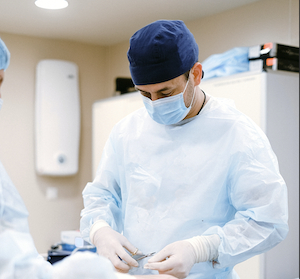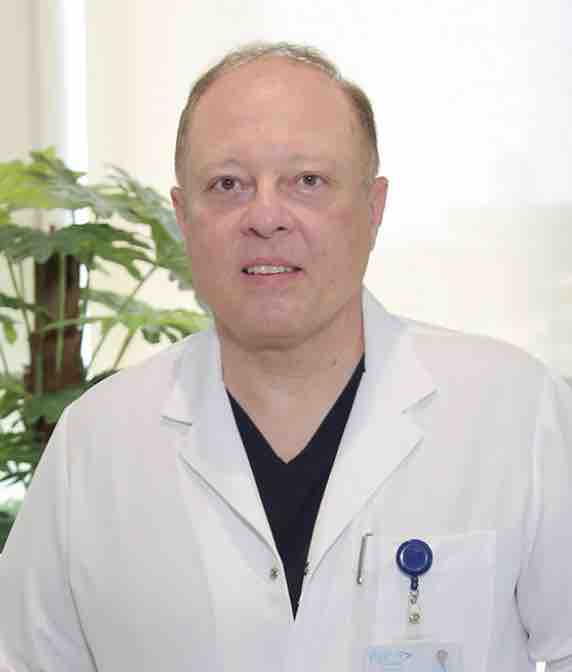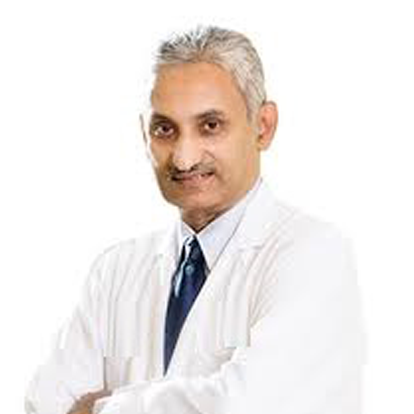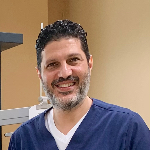Best Cataract Doctors in Dubai
26 October 2021
1289 views
What is Cataract?
When vision starts to get blurry, it could be caused by the clouding of the lens of your eye. This clouding is caused by the breakdown of proteins that start to clump up, and after some time, need to be removed from one or both eyes to restore clear vision again.
There are a few types of cataract and are as follows: age-related, trauma-related, radiation, pediatric and secondary. As we age, cataracts are more likely to occur if you smoke and drink alcohol, have a family history of cataract, pre-diabetic or diabetic, undergone previous eye surgeries, and take steroids. Eye injuries can also contribute to the likelihood of developing cataract. Also, exposure to UV rays over an extended period of time can cause cataracts. Although rare, children can develop cataracts and are usually due to genetics. Finally, secondary cataract can occur in people who have undergone cataract surgery and develop cloudy vision again. However, this cloudiness occurs on the outside, rather than on the inside of the lens, and can be corrected with a procedure called laser capsulotomy.
According to the American Optometric Association (AOA), it is important to check the health of your eyes at least once every 2 years with an ophthalmologist or an eye doctor. A comprehensive eye examination will be conducted to evaluate the health of your eyes and based on the results, your ophthalmologist or eye doctor will recommend the right treatment, medication and if necessary, corrective lenses.
What are the different types of cataract treatments?
In standard cases, an ophthalmologist or eye doctor will first recommend a comprehensive eye examination to determine the right diagnosis for your eyes. After which, based on the level of visual impairment, sometimes minimal or no treatment may be provided by the doctor such as a modified eyeglass prescription (using anti-glare coating on eyeglass lenses). Otherwise, if the vision impairment reaches the point of compromising your ability to complete everyday tasks, then the eye doctor will recommend cataract surgery. There are 2 types of cataract surgery, or removal performed by eye doctors:
[1] Phacoemulsification, traditional cataract surgery, or small-incision cataract surgery (SICS) is small-incision surgery made in the side of the cornea, and a probe is inserted to break up the cloudy lens of the eye using sound waves. The broken-down proteins and lens are suctioned out, and an Intraocular Lens (IOL) is implanted into the eye, replacing the cloudy natural lens.
[2] Extracapsular cataract extraction surgery (ECCE) is similar to traditional cataract surgery, however the incision in the cornea is larger to remove the cloudy lens in one piece. Replacement of the cloudy lens is also done using an IOL implanted into the eye.
Depending on the severity of the cataract, a final recommended treatment will be provided by the ophthalmologist or eye doctor to quickly manage the effects of cataract.

How can I find the right cataract treatment for me?
Finding the right surgeon(s) determines everything
A surgery result does not depend on the reputation of a clinic. Ultimately, it is the expertise of the surgeon that determines the outcome. Nothing can replace the skillful hands of a surgeon who has deep insight into the human body and a patient’s aspiration.
Research the credentials, portfolio, and other patients’ reviews of the surgeon(s)
It is difficult for a patient to evaluate the skill of a surgeon. However, there are some standard checklists you should apply to choose the right surgeon.
- First, ensure that surgeons/specialists/consultants are certified from trustworthy institutions.
- Second, check if they have excellently performed surgery for a similar case as yours. You may check their portfolio online or get it upon request to the clinic.
- Third, search up what other patients had to say about the physician that you shortlisted. Platforms like DrFive.com could be a good starting point for your research.
Know your budget and schedule
Most plastic surgeries are elective treatments. In other words, they will not be covered by your health insurance and you need to pay for the entire treatment. Depending on a few factors we will explain below, there are quite big differences in the treatment costs and you need to ensure that treatments from your shortlisted providers are within your budget. Don’t forget to determine when you want to get the surgery prior to contacting clinics. Most sought-after surgeons have a very tight schedule and the next available slots may only open up far beyond your availability. Having a clear timeline can prevent unnecessary last minute surprises.
What are the driving factors for the different prices of cataract treatments in Dubai?
Qualifications of the practitioner
Medical groups in Dubai are diverse and numerous. Physicians come from different schools of thought and each gives their own perspective on the best treatment options. Some of these doctors are board certified from recognized institutions in the UK, Europe or USA, while others have regional or local qualifications. All of whom possess a knowledge base with a specific set of training and practical knowledge.
Brand awareness of the clinic
Treatments from more reputable hospitals will usually be costlier than clinics not widely known to people. Institutions make huge investments to build a trusted brand and we, as the end-consumers, are expected to, in return, pay a premium for that brand. Certain local clinics in Dubai have established a history of providing excellent care to people, and in turn, are more expensive than new entrants in the cosmetic treatment field.
Experience of the practitioner
It is quite understandable that you pay more for a service from a more experienced practitioner. For cosmetic procedures, and other specialties, you will usually need to pay more to get treatment from consultants rather than specialists, GPs and other physicians, as they have more expertise and practical experience in their field.

What are the prices for cataract treatments in Dubai?
Many clinics in Dubai will evaluate every candidate’s eyes, health markers and the expected results to recommend the most suitable cataract treatment. Therefore, a complete in-person consultation with an ophthalmologist or eye doctor is necessary for a clinic in Dubai to quote a price for the cataract treatment. As mentioned previously, depending on the severity of the cataract, a final recommended cataract treatment will be provided to the patient. In cases where there is accompanied pain, swelling and more serious symptoms, insurance holders will be covered for the cataract treatment which will entail a laser surgery. Through some of our team’s analysis we were able to find the following prices for cataract removal in Dubai.
Comprehensive eye examination prices in Dubai range between AED 250 to AED 500 with an average price of AED 375.
Phacoemulsification, traditional cataract surgery, or small-incision cataract surgery (SICS) prices in Dubai range between AED 21,000 to AED 37,000 with an average price of AED 29,000.
Extracapsular cataract extraction surgery (ECCE) prices in Dubai range between AED 25,000 to 31,000 with an average price of AED 28,000.
*Please note that the above mentioned prices may not necessarily include the below mentioned costs:
- Radiology services
- Take home medication
- Pre-anaesthetic check-up
- Any complications from the surgery/procedure
- Additional surgeries
- Additional consumables used if needed

According to the DrFive rating system*, who are the most recommended surgeons or physicians for cataract treatments in Dubai?
Dr Mamta Mittal
Dr Mamta Mittal has over 15 years of experience and over 10 years of clinical practice in the UAE. She is a proud recipient of the International Ophthalmology Education award from American Academy of Ophthalmology (AAO). Dr Mamta is also a member of several internationally-recognized ophthalmology societies and academies in the US and UK.
Dr Chidamber Boughram Srinivas
Dr Chidamber Boughram Srinivas is one the most respected specialist ophthalmologists in Dubai for starting multiple independent eye clinics for well known medical institutions in the UAE. He has been treating patients in Dubai for over 23 years and is an active member with several international ophthalmology organizations. Dr Chidamber is trusted for his vast experience in all problems related to the eye especially in more complex cases.
Dr. Tarek Ibrahim
Dr. Tarek Ibrahim is the co-founder of Eye Consultants in Dubai Healthcare City and is one of the most reputed consultant ophthalmologists in the region. He has been providing his expertise in the UAE for over 5 years and over 18 years of experience in his field. He holds numerous accolades from Spain to USA and works closely with laser technology in both cataract and Lasik, and in correcting keratoconus. Dr Tarek is also a holder of the prestigious Chibret, the Spanish national prize of Ophthalmology research.
Dr Sathish Kidiyur Rama Bhat
Dr Sathish Kidiyur Rama Bhat has been helping people with their eyesight for over 20 years in Dubai. His expertise and interests are in the anterior segment, pediatric ophthalmology and occuloplasty. His work experience and practice also includes publishing over 60 papers and teaching as a professor in India. Dr Sathish has worked with multiple highly recognized medical institutions in Dubai. Starting with Welcare Hospital in 2001 to currently in Medcare Hospital and JTS Medical Center.
Dr Adel Mohammed Husein Badr
Dr Adel Mohammed Husein Badr has over 17 years of experience in his field, 5 of which are here in the UAE. He is a fellow of the Royal College of Physicians & Surgeons (Ophthalmology), Glasgow (UK) and a member of Internal Council of Ophthalmology, London- UK. His area of practice and interest is in Refractive surgeries (Femto-LASIK, SMILE, PRK), Topical Cataract Surgery with multifocal toric lenses, medical retina and diabetic retinopathy management, and surgical retina and retinal detachment surgeries.
Comments
Other Articles
- How Emirates Smiles challenges Invisalign in Dubai - 17 March 2023
- Top Do's and Dont's for Patient Referrals - 07 March 2022
- Express Quote Tutorial - 16 February 2022
- Best Ayurvedic Treatments in Dubai - 18 November 2021
- Best IVF Clinics in Dubai Reviewed - 02 November 2021
- LASIK: The Best Treatments and Prices in Dubai - 29 October 2021
- Vaginal Rejuvenation Treatments in Dubai: A Complete Guide - 26 October 2021
- Best Glaucoma Doctors in Dubai - 25 October 2021
- Vaginoplasty Prices in Dubai - 24 October 2021
- Labiaplasty Prices in Dubai - 22 October 2021
- Best Varicose Vein Surgeons in Dubai - 17 October 2021
- Hair Transplant Surgery vs Non Surgical Hair Loss Treatments in Dubai - 14 October 2021
- FUE vs DHI vs Robotic Hair Transplant in Dubai - 13 October 2021
- Best Gynecomastia Surgeons in Dubai - 13 October 2021
- Best Beard Transplant Surgeons in Dubai - 12 October 2021
- Best Tummy Tuck Surgeons in Dubai - 11 October 2021
- Best Hair Transplant Surgeons in Dubai - 11 October 2021
- Best Body and Face Lift Surgeons in Dubai - 09 October 2021
- Best Liposuction Surgeons in Dubai - 07 October 2021
- Best Weight Loss Surgeons in Dubai - 05 October 2021
- Best Brazilian Butt Lift (BBL) Surgeons in Dubai - 05 October 2021
- Best Breast Surgeons in Dubai - 04 October 2021
- Best Rhinoplasty (Nose Job) Surgeons in Dubai - 03 October 2021
- Beauty Salons vs. Clinics: 3 Reasons to Consider Beauty Salons for Body Slimming in Dubai - 29 September 2021
- Best LPG Treatments in Dubai: Prices and Locations - 24 September 2021
- Beauty Salons vs. Clinics: Which is Better and Safer for Cosmetic Treatments in Dubai? - 24 September 2021
- CoolSculpting vs CoolTech, which one to choose in Dubai? - 22 September 2021
- Profhilo Treatment and Price in Dubai - 18 September 2021
- Stretch Mark Treatment Prices in Dubai - 16 September 2021
- Cellulite Treatment Prices in Dubai - 13 September 2021
- Hand and Foot Rejuvenation Prices in Dubai - 12 September 2021
- Body Slimming Treatment Prices in Dubai - 12 September 2021
- Facial Treatment Prices in Dubai - 07 September 2021
- Hair Loss Treatment Prices in Dubai - 02 September 2021
- PRP Prices in Dubai - 01 September 2021
- Mesotherapy Prices in Dubai - 31 August 2021
- Filler Prices in Dubai - 30 August 2021
- Botox Prices in Dubai - 28 August 2021
- Laser Hair Removal Prices in Dubai - 27 August 2021
- The Best Eczema Cream in Dubai from an Experienced Specialist Dermatologist - 27 June 2021
- Booking Appointment Requests, A New Process - 18 June 2021
- A new way to beauty is here in Dubai - 27 April 2021
- ZEROID, Korea's Number One Dermocosmetic Brand - 30 March 2021
- 10 Ingredients to Watch Out For in Moisturizers for Sensitive Skin - 03 March 2021
- What is Skin Barrier and How Ceramides Work to Repair it? - 02 March 2021
- MartiDerm, A Trusted Brand for Skincare and AntiAging - 24 February 2021
- Skin Care for Sensitive Dry Skin - 07 February 2021
- Skin Care for Sensitive Dry Skin with Pigmentation Concern - 07 February 2021
- Skin Care for Sensitive Dry Skin with Wrinkles Concern - 07 February 2021
- Skin Care for Sensitive Dry Skin with Pigmentation and Wrinkles Concern - 07 February 2021
- Skin Care for Dry Skin - 07 February 2021
- Skin Care for Dry Skin with Pigmentation Concern - 07 February 2021
- Skin Care for Dry Skin with Wrinkles Concern - 07 February 2021
- Skin Care for Dry Skin with Pigmentation and Wrinkles Concern - 07 February 2021
- Skin Care for Sensitive Oily Skin - 04 February 2021
- Skin Care for Sensitive Oily Skin with Wrinkles Concern - 04 February 2021
- Skin Care for Sensitive Oily Skin with Pigmentation Concern - 04 February 2021
- Skin Care for Sensitive Oily Skin with Pigmentation and Wrinkles Concern - 04 February 2021
- Skin Care for Oily Skin - 03 February 2021
- Skin Care for Oily Skin with Wrinkles Concern - 03 February 2021
- Skin Care for Oily Skin with Pigmentation Concern - 03 February 2021
- Top 5 Moisturizers Recommended in Dubai for Atopic Dermatitis or Extremely Dry and Sensitive Skin - 31 January 2021
- Skin Care for Oily Skin with Pigmentation and Wrinkles Concern - 13 January 2021
- The Future of Healthcare Services is at Home - 08 January 2021
- Dermatologists' Guide to Select Right Cosmetic Products - 30 December 2020
- Pfizer Vs Sinopharm in the UAE: Which COVID Vaccine Should I Take? - 24 December 2020
- The Most Comprehensive Business Tool for Hospitals and Clinics - 21 October 2020
- Top 5 Most Popular Dental Treatments on DrFive - 29 June 2020
- Welcome to UAE’s #1 Healthcare Review Portal - 29 June 2020
- Top 3 Dental Clinics by Volume of Vouchers Sold on DrFive - 28 June 2020
- Did You Know that Dental Patient Referral by DrFive is 5 Times Better than Google? - 25 June 2020
- Did You Know 89% of Patients in Dubai are Happy with their Doctors - 24 June 2020
- Did You Know Over 50,000 People Visit Doctor Profiles Every Month - 23 June 2020
- Did You Know Patients Trust Reviews - 22 June 2020
- COVID-19 in Pregnancy - 07 April 2020
- Top 10 Gynecologists in Dubai by Reviews in 2019 - 15 January 2020
- Best Orthopedic Hospital in Pusan: Kang Dong Hospital - 15 January 2020
- Top 10 Dermatologists in Dubai for 2019 - 07 January 2020
- Top 8 Plastic Surgeons in Dubai for 2019 - 05 January 2020
- Top 10 Orthopedic Surgeons in Dubai for 2019 - 05 January 2020
- Best General Hospital in Pusan: Pusan National University Hospital - 29 December 2019
- 5 Essential Medical Tests for Men Over 40 in Dubai - 08 December 2019
- Compare Dental Services in Dubai with ExpressQuote - 16 September 2019
- Korea's Top Surgeons Obsessed with Safety - Banobagi Plastic Surgery - 25 June 2019
- Gold Standard in Korea? - JK Plastic Surgery - 19 May 2019
- Treating Back Pain Without Surgery – Jaseng Hospital - 12 May 2019
- Ginseng, the Elixir of Life? - 12 May 2019
- First and Best Infertility Treatment in Korea - MizMedi Hospital - 01 May 2019
- The Only Heart Specialty Hospital in Korea - Sejong Hospital - 01 May 2019
- Why Arab Patients Choose Wooridul? - 01 May 2019
- Intro: Best Hospitals in Korea 2019 - 18 April 2019
- Dubai: FREE CME Points for OB/GYNs on March 11 - 09 March 2019
- Top 10 Dubai Rheumatologists Most Searched in 2018 - 18 January 2019
- Top 10 Gynecologists in Dubai by reviews in 2018 - 18 January 2019
- Dubai: FREE CME Seminar for OB/GYNs on January 22 - 17 January 2019
- Top 10 Pediatricians in Dubai by reviews in 2018 - 16 January 2019
- Top Doctor Reviews of the Week, Dec 20 - Dec 27, 2018 - 27 December 2018
- Top Doctor Reviews of the Week, Dec 14 - Dec 20, 2018 - 21 December 2018
- Top Doctor Reviews of the Week, Dec 7 - Dec 13, 2018 - 13 December 2018
- Top Doctor Reviews of the Week, Nov 30 - Dec 6, 2018 - 06 December 2018
- Who is the most recommended Dubai gynecologist at each hospital in 2018? - 05 December 2018
- Top Doctor Reviews of the Week, Nov 23-29, 2018 - 29 November 2018
- Top Doctor Reviews of the Week, Nov 15-22, 2018 - 22 November 2018
- Top 4 complaints to doctors in Dubai - 15 November 2018
- Top Doctor Reviews of the Week, Nov 8-14, 2018 - 15 November 2018
- Top 5 Patient Complaints to Healthcare Management in Dubai - 14 November 2018
- New Features on DrFive Exclusively for Doctors - 11 November 2018
- Top Doctor Reviews of the Week, Nov 1-7, 2018 - 08 November 2018
- 3 Important Health and Behavioral Takeaways from Ramadan for Non-Muslims Living in Dubai - 18 June 2018
- Why is Your Child Sick in Dubai? - 28 May 2018
- Inhaling Dust in the UAE: Will it Take Your Breath Away? - 20 May 2018
- Top 6 Neurologists in Dubai by Search Volume - 13 May 2018
- My Daughter Started her Period: Too Delicate a Topic in the UAE? - 03 May 2018
- The Real Price of a Hollywood Smile - 08 April 2018
- Meet the 1st Artificial Intelligence (AI) Doctor for Stroke Diagnosis - 23 February 2018
- Top 8 Endocrinologists in Dubai by Search Volume - 20 February 2018
- Top 7 Gastroenterologists in Dubai by Search Volume - 17 February 2018
- Top 7 Internal Medicine Doctors in Dubai by Search Volume - 14 February 2018
- Dubai's 10 Most Popular Psychiatrists in Feb 2018 - 11 February 2018
- Top 7 ENT Doctors in Dubai by Search Volume - 06 February 2018
- Top 7 Urologists in Dubai by Search Volume - 06 February 2018
- Top 10 Pediatric Dentists in Dubai by reviews Jan 2018 - 04 February 2018
- Top 7 Plastic Surgeons in Dubai by Search Volume - 01 February 2018
- 10 Dental Clinics in Dubai with Reasonable Prices - 16 January 2018
- Top 9 Chiropractors in Dubai by reviews in 2017 - 11 January 2018
- Top 5 Pediatricians in Dubai by reviews in 2017 - 03 January 2018
- Top 6 Orthopedic Surgeons in Dubai by reviews in 2017 - 03 January 2018
- Top 5 Ophthalmologists (Eye Doctors) in Dubai by reviews in 2017 - 02 January 2018
- Top 5 Dermatologists in Dubai by reviews in 2017 - 31 December 2017
- Top 9 Dentists in Dubai by reviews in 2017 - 29 December 2017
- Top 10 Gynecologists in Dubai by reviews in 2017 - 29 December 2017
- Korea, the best Healthcare in the World? - 20 October 2017
- Meet Top Korean Hospitals and Clinics in Dubai: Korea Medical and Wellness Travel Mart - 11 September 2017
- New Day, Same Ugly Face! - 07 June 2017
- Brain Eats Itself: a new finding on sleep deprivation - 30 May 2017
- DrFive presents: La Familia Medical Center - 25 May 2017
- Even moderate drinking increases risk of breast cancer - 24 May 2017
- Instagram the Worst for Young People's Mental Health - 23 May 2017
- Why visit, when you can just make a call for medical consultation? - 22 May 2017
- Hackers Seize Patient Information With Ransomware and Extort Hospitals - 17 May 2017
- 5 Tips for Healthy Teeth: Dr May - Talass Medical and Dental Center - 14 May 2017
- Union Coop pulls Sadia frozen chicken off Dubai shelves - 14 May 2017
- Bridge-Enhanced ACL Repair (BEAR) | Boston Children's Hospital - 11 May 2017
- Medical Tourism in Bangkok Thailand - 10 May 2017
- You Can Take Steps to Lower Your Breast Cancer Risk - 09 May 2017
- Popular Indian doctor in UAE dies of lung cancer - 08 May 2017
- 3D printing plastic braces for $60 - 08 May 2017
- Children's Hospital of Philadelphia 'artificial womb' life-changer for premature babies - 07 May 2017
- DrFive review: Prime Hospital - 13 December 2016
- Dubai’s Most Mentioned Hospitals: Sick on Friday, What is Your Best Option? - 08 November 2016
- Pediatric Care: Where Should I Go? - 18 October 2016
- American Hospital vs Mediclinic City Hospital - 20 September 2016









Enter your comment below
Press 'ENTER' key to submit